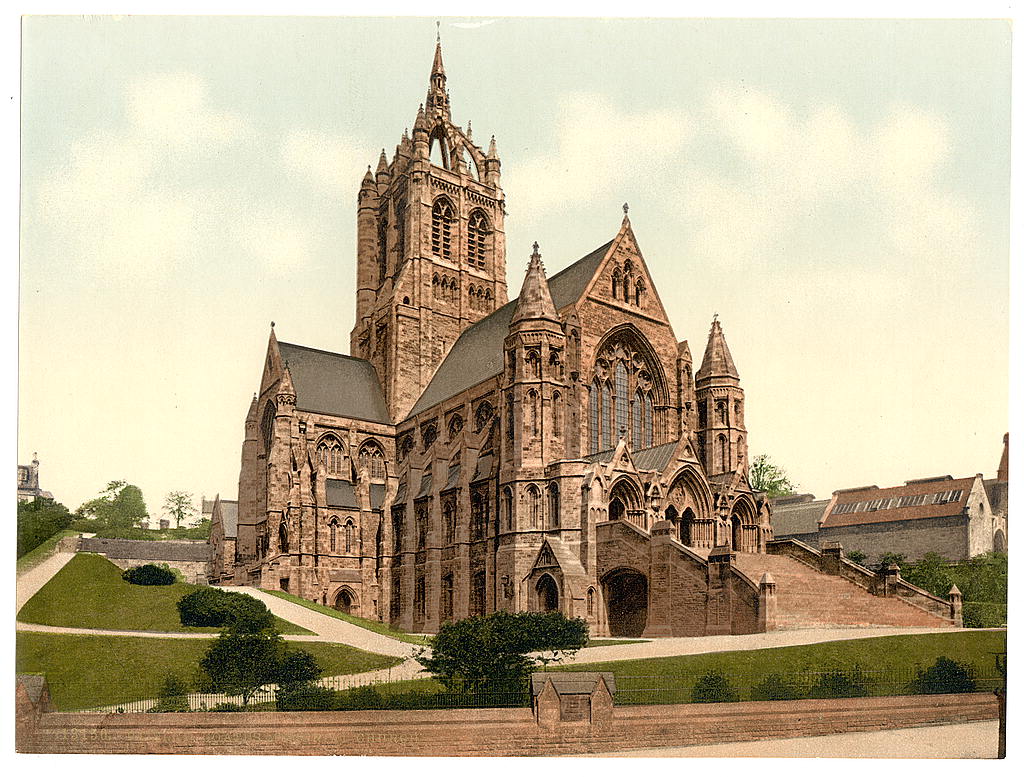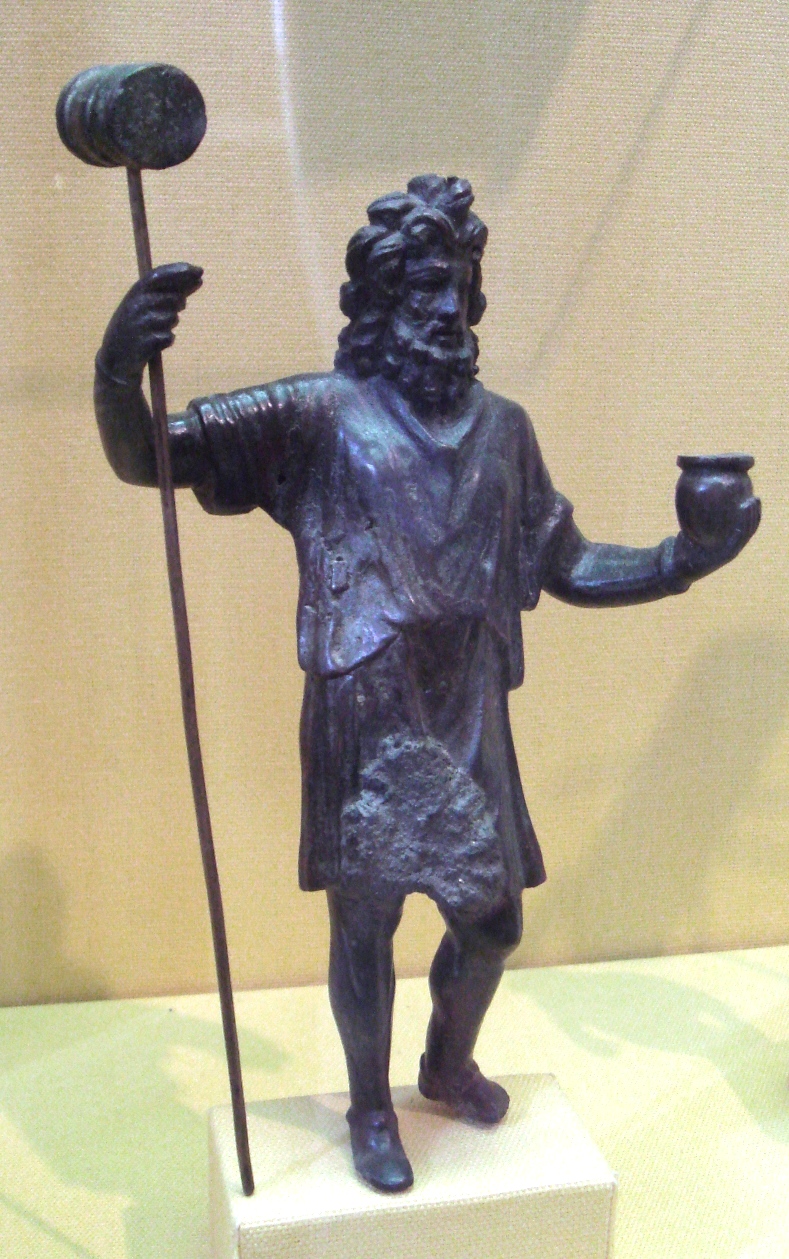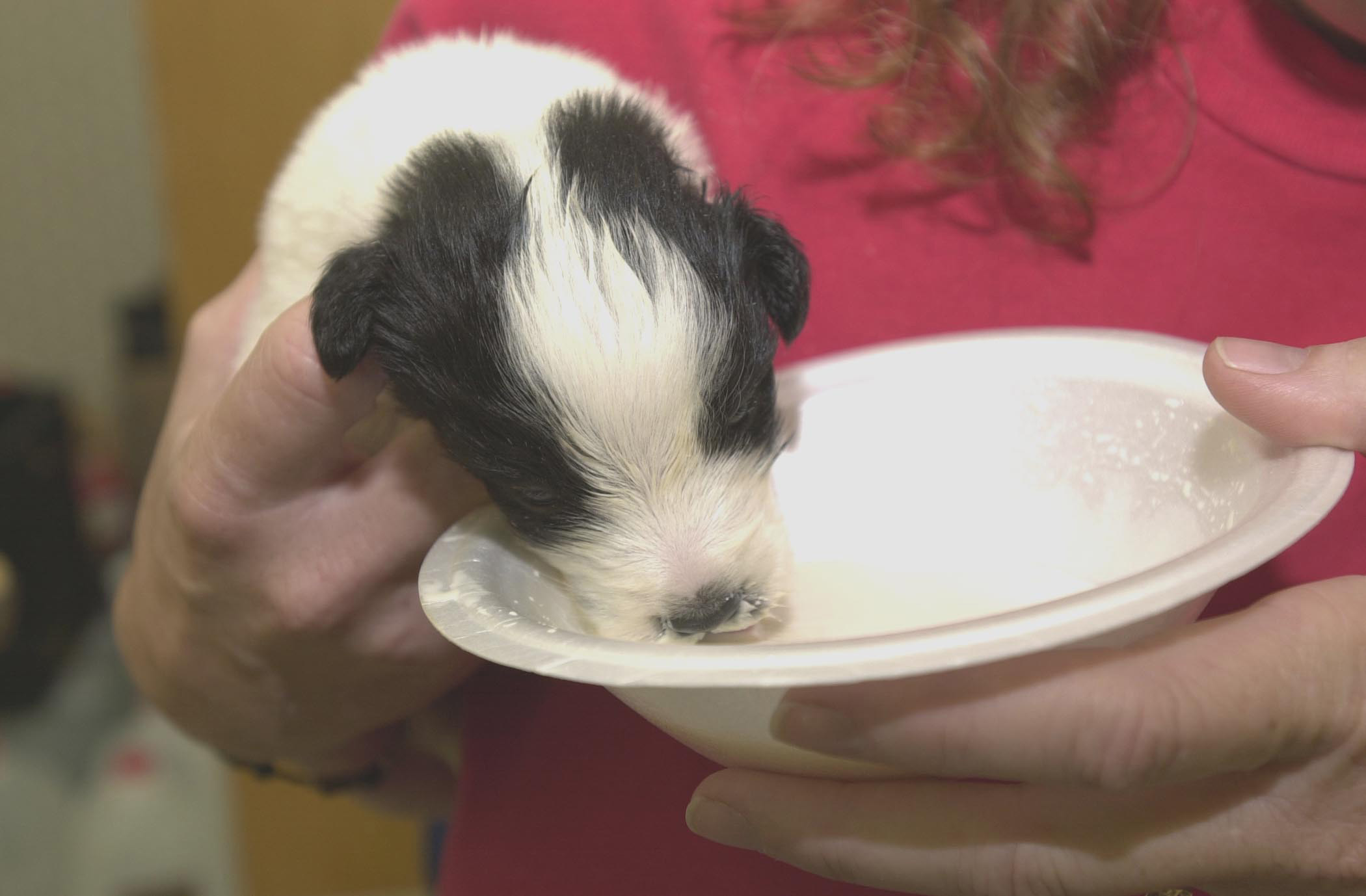|
Patricia Leitch
Patricia Leitch born 13 July 1933, Paisley, Renfrewshire, Scotland, died 28 July 2015, was a Scottish writer, best known for her series of children's books in the pony story genre about Jinny Manders and her wild, traumatised Arabian horse Shantih, set in the Scottish Highlands. The 12 books in the Jinny series were published between 1976 and 1988 by Armada. They are currently in reprint by Catnip Publishers. Two more of her novels, Dream of Fair Horses (1975) and The Horse from Black Loch (1963) have been republished by Jane Badger Books. She has also written under the pseudonym Jane Eliot. The Jinny series books often contain this brief biographical information: "Patricia Leitch started riding when a friend persuaded her to go on a pony trekking holiday - and by the following summer she had her own Highland pony, Kirsty. She wrote her first book shortly after this and writing is now her full-time occupation, but she has also done all sorts of different jobs, including being ... [...More Info...] [...Related Items...] OR: [Wikipedia] [Google] [Baidu] |
Paisley, Renfrewshire
Paisley ( ; sco, Paisley, gd, Pàislig ) is a large town situated in the west central Lowlands of Scotland. Located north of the Gleniffer Braes, the town borders the city of Glasgow to the east, and straddles the banks of the White Cart Water, a tributary of the River Clyde. Paisley serves as the administrative centre for the Renfrewshire council area, and is the largest town in the historic county of the same name. It is often cited as "Scotland's largest town" and is the fifth largest settlement in the country, although it does not have city status. The town became prominent in the 12th century, with the establishment of Paisley Abbey, an important religious hub which formerly had control over other local churches. By the 19th century, Paisley was a centre of the weaving industry, giving its name to the Paisley shawl and the Paisley pattern. The town's associations with political radicalism were highlighted by its involvement in the Radical War of 1820, with striking ... [...More Info...] [...Related Items...] OR: [Wikipedia] [Google] [Baidu] |
Celtic Mythology
Celtic mythology is the body of myths belonging to the Celtic peoples.Cunliffe, Barry, (1997) ''The Ancient Celts''. Oxford, Oxford University Press , pp. 183 (religion), 202, 204–8. Like other Iron Age Europeans, Celtic peoples followed a polytheistic religion, having many gods and goddesses. The mythologies of continental Celtic peoples, such as the Gauls and Celtiberians, did not survive their conquest by the Roman Empire, the loss of their Celtic languages and their subsequent conversion to Christianity. Only remnants are found in Greco-Roman sources and archaeology. Most surviving Celtic mythology belongs to the Insular Celtic peoples (the Gaels of Ireland and Scotland; the Celtic Britons of western Britain and Brittany). They preserved some of their myths in oral lore, which were eventually written down by Christian scribes in the Middle Ages. Irish mythology has the largest written body of myths, followed by Welsh mythology. The supernatural race called the Tuatha ... [...More Info...] [...Related Items...] OR: [Wikipedia] [Google] [Baidu] |
Scottish Children's Writers
Scottish usually refers to something of, from, or related to Scotland, including: *Scottish Gaelic, a Celtic Goidelic language of the Indo-European language family native to Scotland *Scottish English *Scottish national identity, the Scottish identity and common culture *Scottish people, a nation and ethnic group native to Scotland *Scots language, a West Germanic language spoken in lowland Scotland *Symphony No. 3 (Mendelssohn), a symphony by Felix Mendelssohn known as ''the Scottish'' See also *Scotch (other) *Scotland (other) *Scots (other) *Scottian (other) *Schottische The schottische is a partnered country dance that apparently originated in Bohemia. It was popular in Victorian era ballrooms as a part of the Bohemian folk-dance craze and left its traces in folk music of countries such as Argentina ("chotis"Span ... * {{disambiguation Language and nationality disambiguation pages ca:Escocès ... [...More Info...] [...Related Items...] OR: [Wikipedia] [Google] [Baidu] |
2015 Deaths
This is a list of deaths of notable people, organised by year. New deaths articles are added to their respective month (e.g., Deaths in ) and then linked here. 2022 2021 2020 2019 2018 2017 2016 2015 2014 2013 2012 2011 2010 2009 2008 2007 2006 2005 2004 2003 2002 2001 2000 1999 1998 1997 1996 1995 1994 1993 1992 1991 1990 1989 1988 1987 See also * Lists of deaths by day The following pages, corresponding to the Gregorian calendar, list the historical events, births, deaths, and holidays and observances of the specified day of the year: Footnotes See also * Leap year * List of calendars * List of non-standard ... * Deaths by year {{DEFAULTSORT:deaths by year ... [...More Info...] [...Related Items...] OR: [Wikipedia] [Google] [Baidu] |
1933 Births
Events January * January 11 – Sir Charles Kingsford Smith makes the first commercial flight between Australia and New Zealand. * January 17 – The United States Congress votes in favour of Philippines independence, against the wishes of U.S. President Herbert Hoover. * January 28 – "Pakistan Declaration": Choudhry Rahmat Ali publishes (in Cambridge, UK) a pamphlet entitled ''Now or Never; Are We to Live or Perish Forever?'', in which he calls for the creation of a Muslim state in northwest India that he calls " Pakstan"; this influences the Pakistan Movement. * January 30 ** National Socialist German Workers Party leader Adolf Hitler is appointed Chancellor of Germany by President of Germany Paul von Hindenburg. ** Édouard Daladier forms a government in France in succession to Joseph Paul-Boncour. He is succeeded on October 26 by Albert Sarraut and on November 26 by Camille Chautemps. February * February 1 – Adolf Hitler gives his "Proclamation to ... [...More Info...] [...Related Items...] OR: [Wikipedia] [Google] [Baidu] |
Susan Cooper
Susan Mary Cooper (born 23 May 1935) is an English author of children's books. She is best known for '' The Dark Is Rising'', a contemporary fantasy series set in England and Wales, which incorporates British mythology such as the Arthurian legends and Welsh folk heroes. For that work, in 2012 she won the lifetime Margaret A. Edwards Award from the American Library Association, recognizing her contribution to writing for teens. In the 1970s two of the five novels were named the year's best English-language book with an "authentic Welsh background" by the Welsh Books Council. Biography Cooper was born in 1935 in Burnham, Buckinghamshire, to Ethel May (''née'' Field) and her husband John Richard Cooper. Her father had worked in the reading room of the Natural History Museum until going off to fight in the Second World War, from which he returned with a wounded leg. He then pursued a career in the offices of the Great Western Railway. Her mother was a teacher of ten-year-olds ... [...More Info...] [...Related Items...] OR: [Wikipedia] [Google] [Baidu] |
Epona
In Gallo-Roman religion, Epona was a protector of horses, ponies, donkeys, and mules. She was particularly a goddess of fertility, as shown by her attributes of a patera, cornucopia, ears of grain and the presence of foals in some sculptures. She and her horses might also have been leaders of the soul in the after-life ride, with parallels in Rhiannon of the Mabinogion. The worship of Epona, "the sole Celtic divinity ultimately worshipped in Rome itself", as the patroness of cavalry, was widespread in the Roman Empire between the first and third centuries AD; this is unusual for a Celtic deity, most of whom were associated with specific localities. Etymology Although known only from Roman contexts, the name Epona ('Great Mare') is from the Gaulish language; it is derived from the inferred Proto-Celtic *''ekʷos'' 'horse', which gives rise to modern Welsh ''ebol'' 'foal', together with the augmentative suffix ''-on'' frequently, though not exclusively, found in theonyms (for exa ... [...More Info...] [...Related Items...] OR: [Wikipedia] [Google] [Baidu] |
Predestination
Predestination, in theology, is the doctrine that all events have been willed by God, usually with reference to the eventual fate of the individual soul. Explanations of predestination often seek to address the paradox of free will, whereby God's omniscience seems incompatible with human free will. In this usage, predestination can be regarded as a form of religious determinism; and usually predeterminism, also known as theological determinism. History Pre-Christian period Some have argued that the Book of Enoch contains a deterministic worldview that is combined with dualism. The book of Jubilees seems to harmonize or mix together a doctrine of free will and determinism. Ben Sira affirms free will, where God allows a choice of bad or good before the human and thus they can choose which one to follow. New Testament period There is some disagreement among scholars regarding the views on predestination of first-century AD Judaism, out of which Christianity came. J ... [...More Info...] [...Related Items...] OR: [Wikipedia] [Google] [Baidu] |
Scotland
Scotland (, ) is a country that is part of the United Kingdom. Covering the northern third of the island of Great Britain, mainland Scotland has a border with England to the southeast and is otherwise surrounded by the Atlantic Ocean to the north and west, the North Sea to the northeast and east, and the Irish Sea to the south. It also contains more than 790 islands, principally in the archipelagos of the Hebrides and the Northern Isles. Most of the population, including the capital Edinburgh, is concentrated in the Central Belt—the plain between the Scottish Highlands and the Southern Uplands—in the Scottish Lowlands. Scotland is divided into 32 administrative subdivisions or local authorities, known as council areas. Glasgow City is the largest council area in terms of population, with Highland being the largest in terms of area. Limited self-governing power, covering matters such as education, social services and roads and transportation, is devolved from the Scott ... [...More Info...] [...Related Items...] OR: [Wikipedia] [Google] [Baidu] |
Vegetarianism
Vegetarianism is the practice of abstaining from the consumption of meat (red meat, poultry, seafood, insects, and the flesh of any other animal). It may also include abstaining from eating all by-products of animal slaughter. Vegetarianism may be adopted for various reasons. Many people object to eating meat out of respect for sentient animal life. Such ethical motivations have been codified under various religious beliefs as well as animal rights advocacy. Other motivations for vegetarianism are health-related, political, environmental, cultural, aesthetic, economic, taste-related, or relate to other personal preferences. There are many variations of the vegetarian diet: an ovo-lacto vegetarian diet includes both eggs and dairy products, an ovo-vegetarian diet includes eggs but not dairy products, and a lacto-vegetarian diet includes dairy products but not eggs. As the strictest of vegetarian diets, a vegan diet excludes all animal products, and can be accompanied by absten ... [...More Info...] [...Related Items...] OR: [Wikipedia] [Google] [Baidu] |
Animal Welfare
Animal welfare is the well-being of non-human animals. Formal standards of animal welfare vary between contexts, but are debated mostly by animal welfare groups, legislators, and academics. Animal welfare science uses measures such as longevity, disease, immunosuppression, behavior, physiology, and reproduction, although there is debate about which of these best indicate animal welfare. Respect for animal welfare is often based on the belief that nonhuman animals are sentient and that consideration should be given to their well-being or suffering, especially when they are under the care of humans. These concerns can include how animals are slaughtered for food, how they are used in scientific research, how they are kept (as pets, in zoos, farms, circuses, etc.), and how human activities affect the welfare and survival of wild species. There are two forms of criticism of the concept of animal welfare, coming from diametrically opposite positions. One view, held by some think ... [...More Info...] [...Related Items...] OR: [Wikipedia] [Google] [Baidu] |







